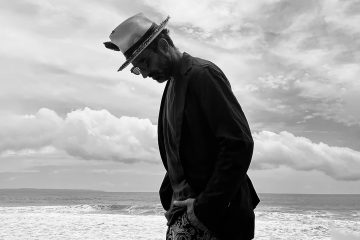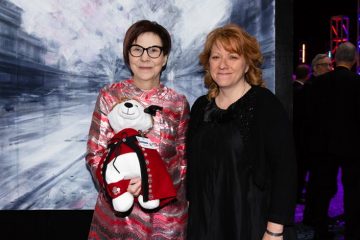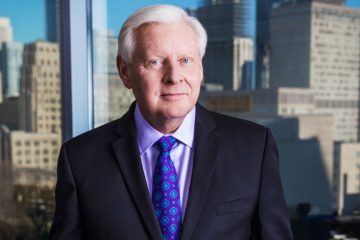Shark Tank’s Kevin O’Leary
Kevin O’Leary is holding a modestly sized styrofoam cup of coffee captive with both hands. Black, no branding. He’s sitting at a small round table on the far right of CBC’s sunlit atrium – a position that also befits his political views. “Welcome to my office,” he kids with a conservative grin. The sheen in his eyes expose a weary, workhorse O’Leary.
It’s mid-afternoon and the 56-year-old business mogul, who began his day at 4:30 a.m., has already coalesced with countless global investors on behalf of his company, O’Leary Funds. In a few hours he’ll be bantering with Amanda Lang about stocks, bonds, Bay Street and beyond on The Lang O’Leary Exchange. “I don’t really believe in this concept of a balanced existence. If you’re an entrepreneur there is no balance, it’s work on the business 110 per cent of the time until you’re either successful or you fail.”
O’Leary and his self-made fortune epitomize the pot o’gold genre. Selling his very first venture Learning Co. Inc. to toymaker Mattel in 1999 for a monstrous $3.6 billion was just the opening act to a slightly less sensationalized Horatio Alger tale. His most recent company, O’Leary Funds, has already raised $1 billion in its infantile state of two years. “I would have never guessed 20 years ago that I’d be doing this today,” says the capitalist with a pseudo-nostalgic gaze.
It’s true. In the swinging ’60s when Lester Pearson was PM and the CBC was saying farewell to black and white broadcasting, O’Leary was a young middle-class Montrealer aspiring to land a lucratively lukewarm placement. “I remember telling my dad that I was hoping I could get a job where I could make $20,000 a year,” reflects O’Leary. “He said to me, ‘You’d be very, very lucky to get that. You’re going to have to work very, very hard.’”
His first fiscal attraction occurred in his mid-teens when he was fired from an ice cream shop for refusing to scrape gum off the floor – a moment that spurred white-collar confidence and entrepreneurial incentive. “It really hit me and I thought, ‘this is a bad outcome. I would be better off to figure out how to be the owner of that store so I can fire people instead,’” he says while adjusting his lilac tie. “You never know when you get these lessons, they become so important later on in life.”
As a commanding television force on fiery business reality shows Dragons’ Den and its American derivitive Shark Tank, there’s no doubting that the multi-millionaire, known for his critical nature, has built his own beautiful brand. “I love working with Kevin – I always know that he is focused on the success of the business which is only measured on the bottom line,” says Dragons’ Den and Shark Tank co-star Robert Herjavec of The Herjavec Group. “He has an amazing ability to cut through the fluff and get to the core issues of any business.” On both shows, budding entrepreneurs pitch their products and business plans to a diverse panel of investors. The ubiquitous O’Leary is best known for his colourful catchphrases that slice through the thin-skinned like shears through a hedge.
Though his image as a bold, money-centric marketing magnate is bang-on, it doesn’t come from a place of narcissism. O’Leary is actually the first to throw stones at his own glass house if it eventually gives rise to a sturdier structure. “It’s better to understand what you’re no good at than it is to understand what you’re good at,” he says, unabashedly owning up to a bevy of business flaws that span from manufacturing to inventory management. His strategy instead, has something to do with harmonizing his portfolio. “What I like to do is form partnerships with people that have complementary skills … When somebody says to me, ‘I’m good at everything,’ I don’t believe that, nobody can be, it just doesn’t work.”
A dollar-driven life is not desired by all, but in O’Leary’s world, money represents a ticket to freedom. It’s the freedom to buy out the ice-cream shop he was fired from if he wants to. It’s the freedom to spend the weekend at his immaculate Muskokan cottage on the lake with his wife and two kids. It’s the freedom to drink as many glasses of Château Latour 1982. And it’s the quirk of fate to play the blues on his Les Paul guitar with a satisfied grin. “I’m just thankful to be alive. I’m thankful for family and friends, which to me matter more and more every year I age. And I’m thankful for all the opportunities I get.” Almost an hour has passed since the venture capitalist first sat down, and the caffeine has clearly revealed a more lively O’Leary. “I love this stuff. This is more fun than you can shake a stick at.”





















































































No Comment